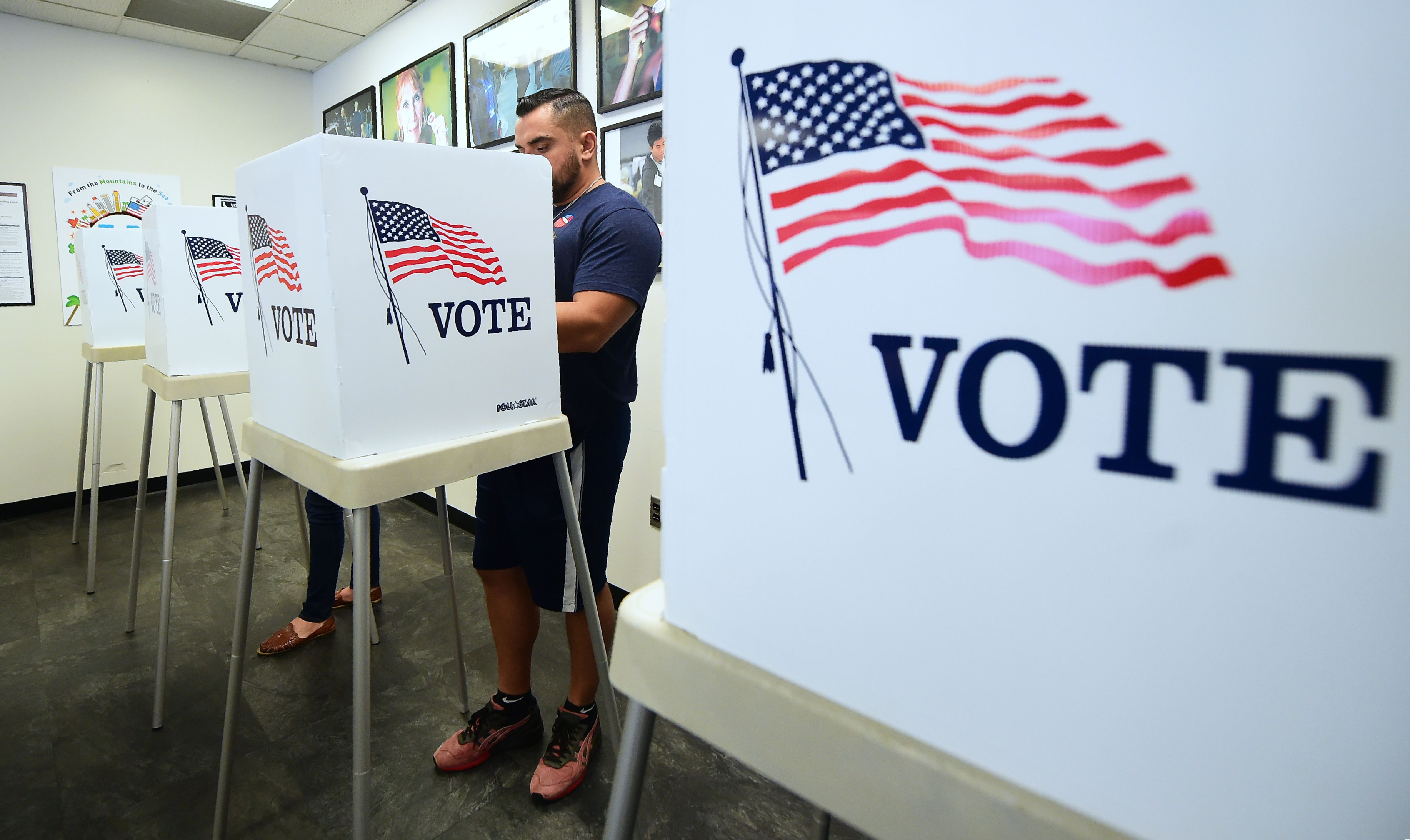Will fake Facebook accounts sway US midterms?
Social network blocks more accounts as US authorities warn voters about ‘foreign actors’ sharing content online

A free daily email with the biggest news stories of the day – and the best features from TheWeek.com
You are now subscribed
Your newsletter sign-up was successful
Facebook has blocked 115 fake accounts suspected of spreading disinformation ahead of today’s US midterm elections.
The social network’s chief of cybersecurity, Nathaniel Gleicher, has revealed that US law enforcement contacted the company on Sunday evening over accounts that “may be linked to foreign entities”.
These accounts - 30 on Facebook and 85 on the network’s photo-sharing platform Instagram - were engaging in “coordinated inauthentic behaviour”, Gleicher said in a statement.
The Week
Escape your echo chamber. Get the facts behind the news, plus analysis from multiple perspectives.

Sign up for The Week's Free Newsletters
From our morning news briefing to a weekly Good News Newsletter, get the best of The Week delivered directly to your inbox.
From our morning news briefing to a weekly Good News Newsletter, get the best of The Week delivered directly to your inbox.
“Almost all the Facebook Pages associated with these accounts appear to be in the French or Russian languages, while the Instagram accounts seem to have mostly been in English,” said Facebook, which added that “some were focused on celebrities, others political debate”.
The company promised to provide an update after it has conducted further investigations, reports The Daily Telegraph.
Among other things, the inquiry will seek to establish whether the groups were run by the Russia-based Internet Research Agency, commonly known as the “troll factory”, which posted fake ads and news stories on social media ahead of the 2016 US election.
Will fake accounts influence the midterms?
A free daily email with the biggest news stories of the day – and the best features from TheWeek.com
US law enforcement and intelligence agencies insist there is “no indication of compromise of our nation’s election infrastructure that would prevent voting, change vote counts, or disrupt the ability to tally votes”.
However, the agencies are urging voters to “be aware that foreign actors - and Russia in particular - continue to try to influence public sentiment and voter perceptions through actions intended to sow discord”.
“They can do this by spreading false information about political processes and candidates, lying about their own interference activities, disseminating propaganda on social media, and through other tactics,” warns a joint statement from Department of Homeland Security Secretary Kirstjen Nielsen, Attorney General Jeff Sessions, Director of National Intelligence Dan Coats, and FBI Director Christopher Wray.
But Engadget argues that “it’s impossible to know” whether disinformation will sway the midterms, given that fake accounts are still being found.
What are tech firms doing to tackle the problem?
Facebook has been conducting investigations that have “uncovered several campaigns” published through fake accounts or pages run by bots - automated systems - in recent month, reports the Financial Times.
Microsoft has also detected “foreign entities” attempting to sway the elections. These include six domains uncovered in August that were “used by Kremlin-linked hackers to target Republican-leaning US political groups”, the newspaper adds.